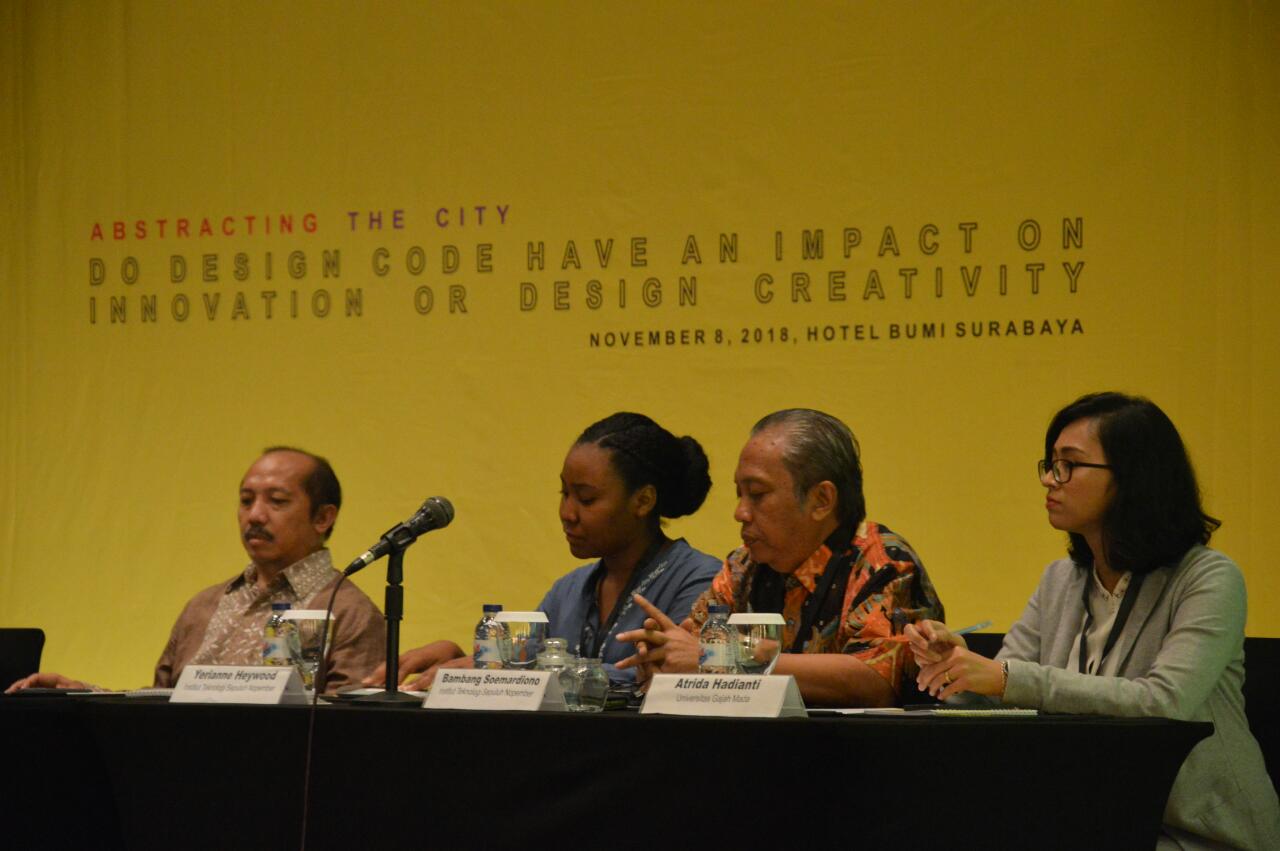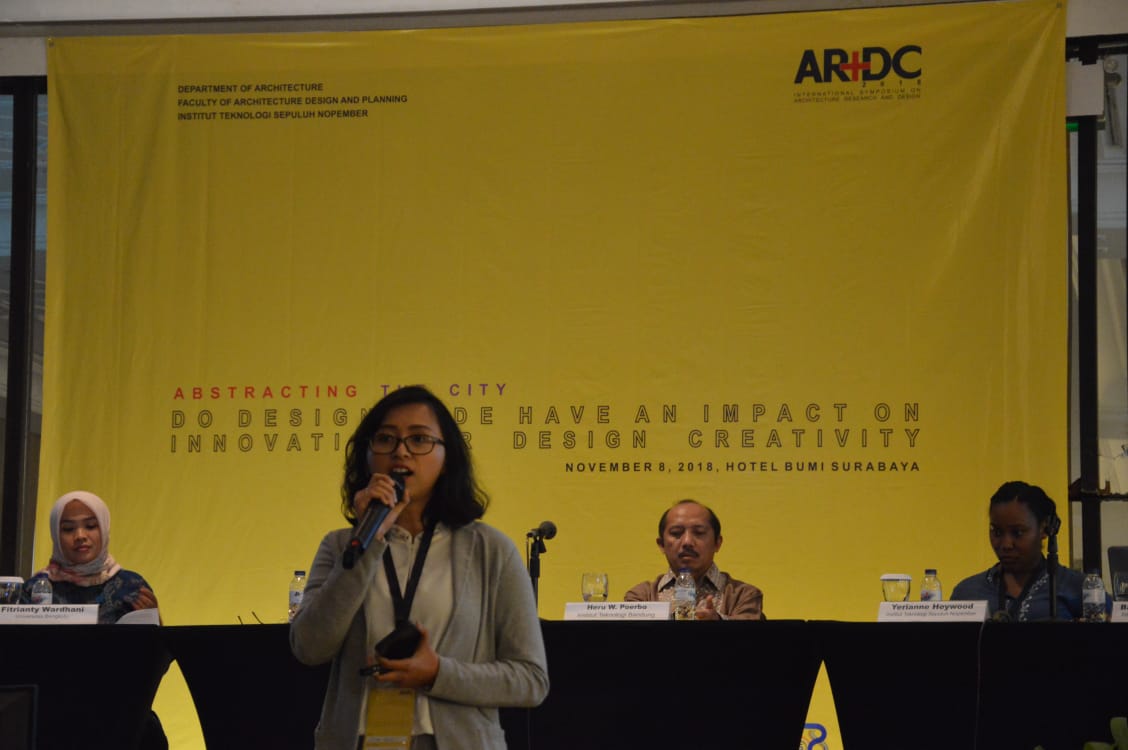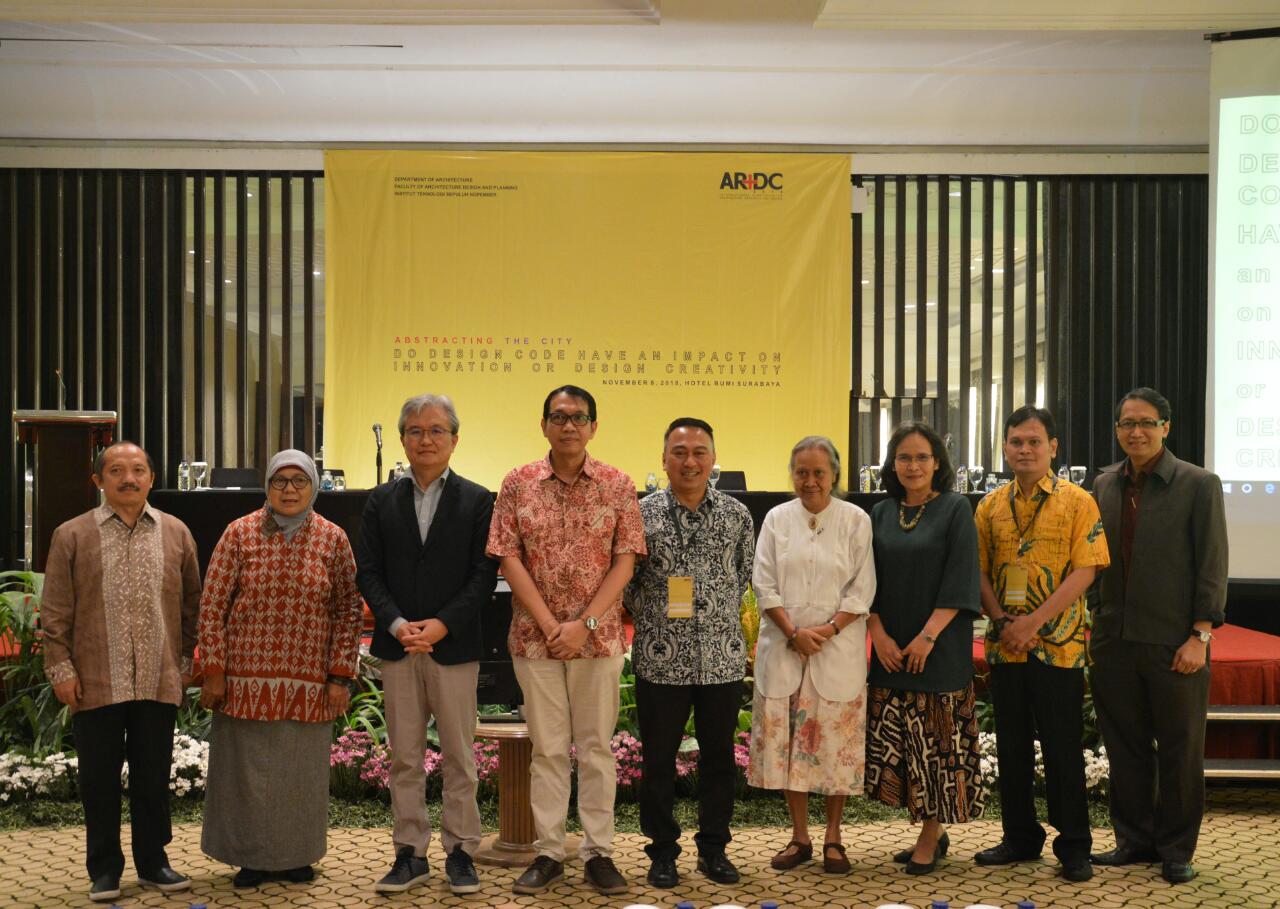ARDC Highlights the Effects of Building Regulations on Design Creativity

(from left to right) Dr. Ing Heru Wibowo, Yerianne C Haywood, Dr. Ing Ir Bambang Soemardiono, and Atrida Hadianti as speakers at the 2018 ARDC
ITS Campus, ITS News – The magnitude of the influence of building regulation on the development of architecture, prompted the Architecture Departement of Institut Teknologi Sepuluh Nopember (ITS) Surabaya, Indonesia to hold an international symposium on Architectural Research and Design Conference (ARDC) 2018 at Bumi Hotel Surabaya, Thursday (11/08) . This time, the ARDC 2018 took the theme Do Design Codes Have Impact to Innovation or Design Creativity?
According to Angger Sukma Mahendra ST MT as the chief executive, the theme was deliberately chosen because building regulations had a major influence on the world of architecture starting from the planning, building and supervision stages of the building. “In this event which held for the 10th times, the ARDC also focuses on discussing urban design or city planner,” he explained.
Sustainable planning at the city scale today, he continued, is one aspect that has begun to be noticed by several cities in Indonesia. This is because urban design also influences other aspects such as economics, social, education, and others.
Today, the innovations and creativity of architects in designing buildings and cities encounter new challenges, namely the existence of several binding regulations. Building codes have several effects in the world of design and architecture. Which is the design style that will look homogeneous, lack of identity, and less responsive in response to the development of design.
One of the speaker, Dr. Ing Ir Heru Wibowo Poerbo MURP, revealed that urban planning and building regulations actually aim to maintain regularity, security, safety and comfort.

Atrida Hadianti giving recitation
According to the lecturer at the Bandung Institute Technology (ITB), several building codes adapted from western countries were not suitable with conditions in Indonesia due to differences in environmental conditions, nature and technology. “Therefore regulations are needed that have been adapted to the local context in Indonesia,” Heru said.
Heru also mentioned the issue of building regulations in tourist areas such as Yogyakarta, Bali, Bandung, and others. According to him, at this time a balance between traditional and modern designs is needed to create a building image that can be accepted by a wide audience.
Meanwhile, Prof. Sung Hong Kim from Seoul University, South Korea revealed, if the restrictions and restrictions set in building codes can actually trigger creativity. “Architects and designers must be able to create design solutions that are able to accommodate human needs, but still in accordance with existing rules,” he said.
Meanwhile, another speaker who is also an ITS Architecture lecturer, Dr. Ing Ir Bambang Soemardiono, explained that the infill design concept that combines historical buildings with new buildings can also be a solution to create harmony in design.
The ARDC 2018 program was also attended by speakers from various universities in Indonesia such as UGM, ITB, University of Bengkulu, Tarumanegara University, and others. (WIM/HUMAS ITS)

Head of Department and ITS Architecture lecturer take a photo with the 2018 ARDC speaker
Related News
-
Support from Various Parties Accompanies the Construction of the New ITS Medics Building
ITS Campus, ITS News — The Faculty of Medicine and Health (Medics) of Institut Teknologi Sepuluh Nopember (ITS) continues
November 12, 2018 14:11 -
ITS Builds Faculty of Medicine and Health Building to Produce Quality Doctors
ITS Campus, ITS News — In order to provide quality education and learning facilities in producing quality medical personnel
November 12, 2018 14:11 -
Antasena ITS Successfully Wins Champion Title at SEM 2025
ITS Campus, ITS News — The Institut Teknologi Sepuluh Nopember (ITS) automotive team has once again proves its excellence
November 12, 2018 14:11 -
Successfully Scoring a Hattrick, Sapuangin ITS Wins Urban Concept ICE SEM 2025
ITS Campus, ITS News — The Sapuangin Team of Institut Teknologi Sepuluh Nopember (ITS) has once again made a
November 12, 2018 14:11
